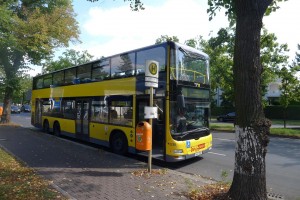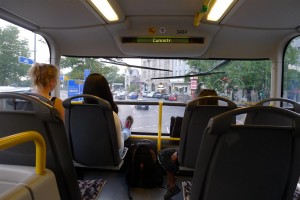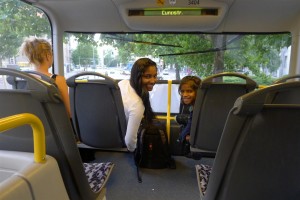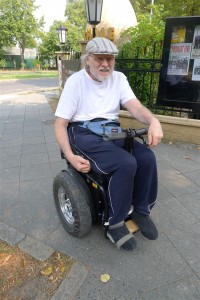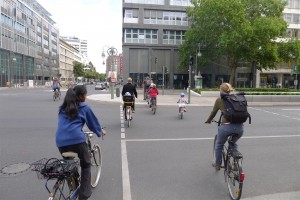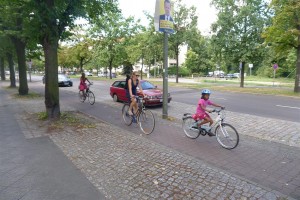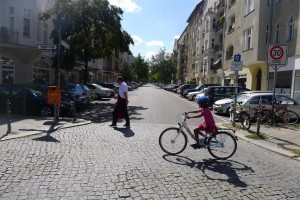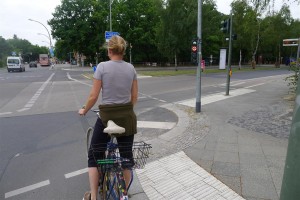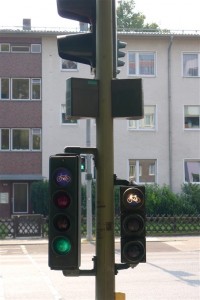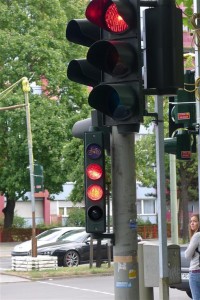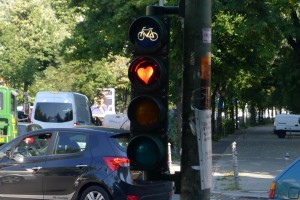This year abroad is giving my family and me an opportunity to experiment with our lifestyle. We traded a rural village in New Hampshire for the capital city of Germany. Owning a house for renting an apartment. Croissants from Burdick’s for broetchen from the neighborhood bakery. And a car and a pick-up truck for…public transportation.
We don’t own a car in Berlin. In fact, one of my goals, which is not necessarily shared by the rest of the family, is to refrain from buying a car while we are here. The public transportation system in Germany works well. We enjoy biking around the city. Car-sharing services like Car2go and drive-now are available. Annette’s sister and her parents have cars we might borrow. We could always rent a car in a pinch.
Prior to moving here, I was already familiar with the subway (U-bahn) and tram (S-bahn) services in Berlin. However, since our apartment is not close to stops for either, we have all been getting comfortable with the bus system. It turns out that Google Maps is smart enough to know which buses go where, and when they leave. And the buses generally seem to run on schedule. Most of the buses that serve our neighborhood are double-deckers. Our favorite seats are on the upper level, all the way to the front. The views are great, and the motion of the bus, especially around curves, is exaggerated in a fun way.
Using primarily public transportation may sound good in theory, but there are times when I do miss having a car. I am late for an appointment, I just missed the bus, and the next one is not for twenty minutes. I want to get to IKEA to pick up a flat-packed set of desk drawers that would be unwieldy to carry back on my bike, but the trip that takes 15 minutes by car is over an hour by bus and subway. Rani has volleyball practice across town that ends after dark, and she has to walk blocks through a graffiti-bedecked neighborhood to reach the S-Bahn station. Annette and I are headed home after a late night out, the buses have stopped running, and taxis are scarce. Okay, that last one happened only once, but still…

